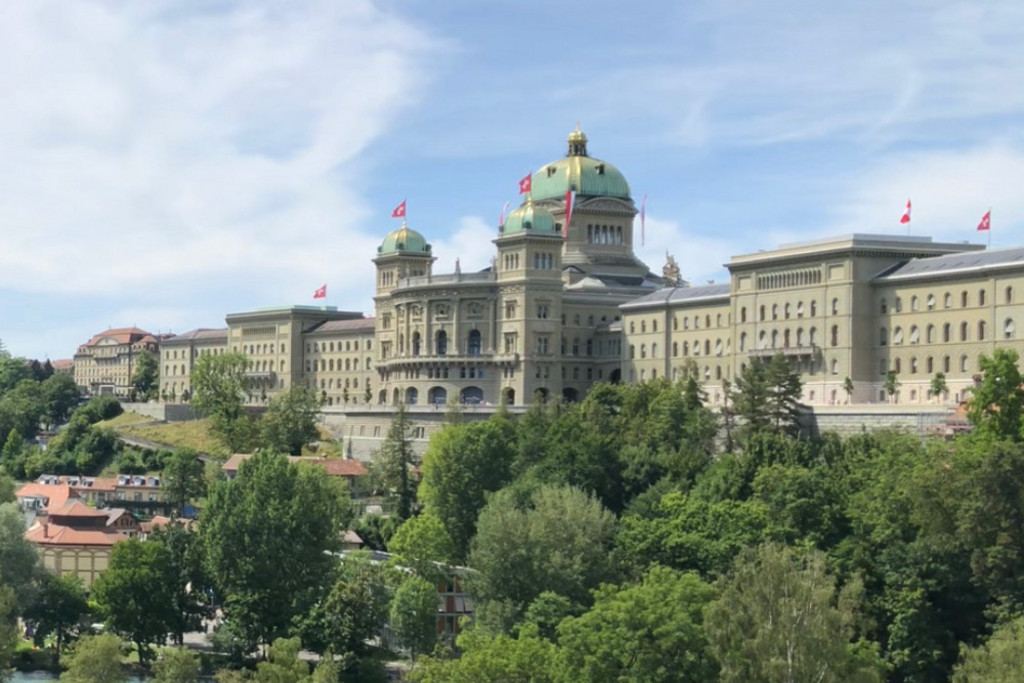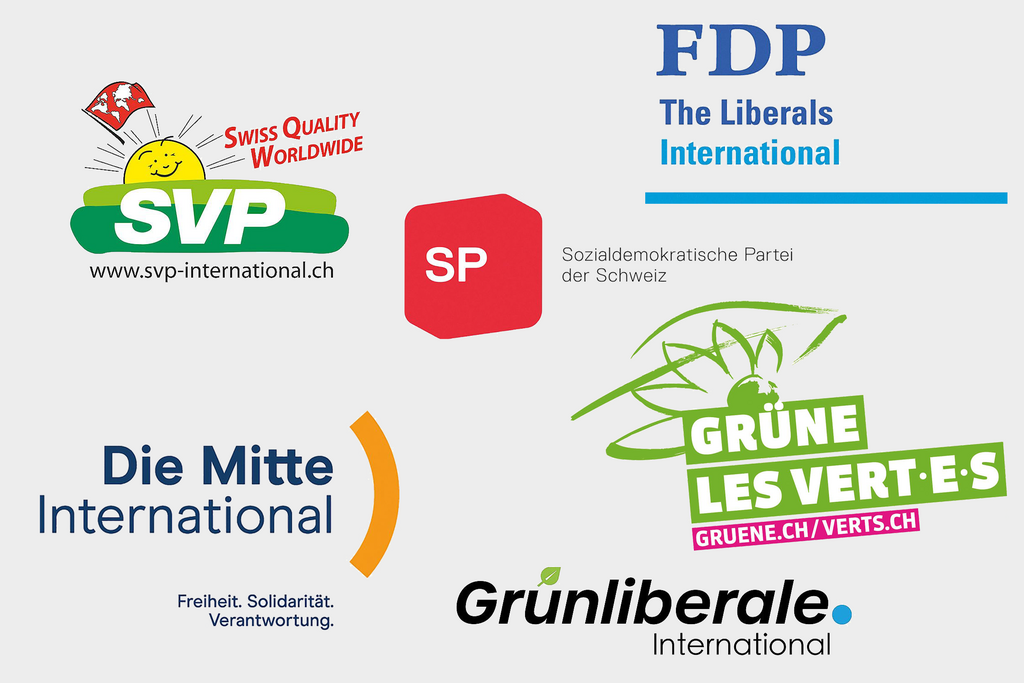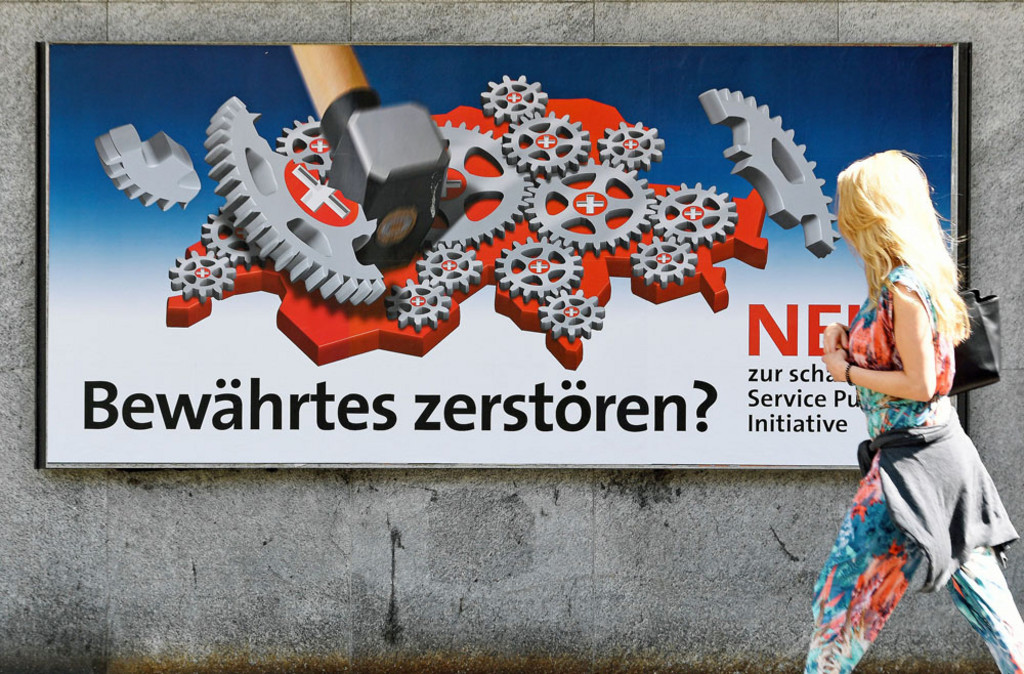National government and the parliamentary majority are pushing through more proposals than ever before. 5 June was the sixth popular vote weekend in a row without defeat for the governing councils. Some 20 proposals have been put to the vote since September 2014, and the Swiss people have voted in line with the Federal Council and Parliament each time.
Public service remains as before
The popular vote of 5 June marked the – perhaps somewhat deceptive – return to the Swiss status quo. Initiatives trigger broad debate on key issues ahead of the vote but typically Swiss pragmatism ultimately triumphs, very much in keeping with the notion of ‘please, no experiments’. This was most clearly expressed in the “Pro public service” popular initiative. According to the opinion polls, the proposal launched by consumer magazines stood a good chance. The initiative’s authors actually thought they were over the line, which meant they were brought down to earth with a bang. The initiative was overwhelmingly defeated with 67.6 % opposing it.
Its text called for quasi-state entities – the Swiss Post Office, Swisscom and the Swiss Federal Railways – not to seek to turn a profit in universal service, not to return profit to the state, and to reduce executive salaries. Considerable discontent with the public utilities emerged during the debate on the initiative. Reduced services, such as post office closures, were bemoaned, as were SBB price increases and late trains. The opposition’s arguments nonetheless ultimately won the day. It warned of the catastrophic consequences of preventing profit and cross-subsidisation, including further reduction of services and universal service being jeopardised in outlying areas. However, the initiative did have some impact. There are already proposals pending in Parliament targeting executive salaries at the quasi-state utilities.
Basic income attracts great attention
The popular initiative calling for unconditional basic income caused a stir, not least abroad. Almost all leading international media followed the debate on this major socio-political issue. While 76.9 % voted ‘no’, almost a quarter of voters backed this rather revolutionary idea. Introducing basic income for all Swiss residents would have equated to a complete restructuring of the welfare state. For this reason, those on the left also largely rejected the proposal, especially as some ultra-liberals flirted with this instrument to radically cut back the various tailored social security systems by means of a low basic income.
The “milch cow” fails to deliver on fuel
The “For fair financing of transport” popular initiative – labelled the “milch cow initiative” for marketing purposes – also came up short by a surprisingly clear margin. The initiative’s authors sought to present motorists as the nation’s dairy cow being milked dry. The proposal’s objective was for petroleum tax on fuels only to be used for expenditure on the roads. Half of the proceeds are currently used on the roads and the other half for other federal spending. The initiative failed miserably, with 70.8 % voting against it. This was a devastating result for the motorist lobby, which is in fact regarded as a powerful, well-organised interest group usually able to mobilise its support effectively.
The large-scale reallocation exercise would have left a huge hole in the federal coffers. Federal government would have faced a deficit of around CHF 1.5 billion. This clearly also made some dyed-in-the-wool motorists stop and think. The fact that a kind of indirect counter-proposal is already on the political agenda – the Motorways and Urban Transport Fund (NAF) – may also have contributed to the defeat. Something similar already exists for the railways with the “fund for the financing and expansion of the railway infrastructure”. To provide a solid financial basis for road projects as well, a permanent fund, the NAF, would be created for the motorways and urban transport. This would be enshrined at constitutional level. Road and rail would then be treated in the same way.
SVP backs the wrong horse
The Swiss People’s Party (SVP), which called the referendum against the revision of the Asylum Act, suffered a shattering blow. The proposal was clearly adopted, with 66.8 % in favour. The resounding defeat was exacerbated for the SVP because its implementing initiative on the expulsion of foreign criminals had already failed in February. Both proposals concerned foreigner policy issues, which are SVP priorities. The Asylum Act has been amended ten times over the past 25 years, and the SVP has always been on the winning side to date.
The SVP’s defeat is primarily explained by the fact that the proposal contains precisely what the party has continually called for – namely an accelerated asylum procedure. This will only take a few months in future. Federal asylum centres where all players will work closely together will be created to achieve this objective. This procedure was successfully trialled in a pilot operation in Zurich. To ensure this shortened procedure is fair, asylum seekers will receive free legal aid. The SVP was up in arms about these “free lawyers”. But their argument did not have the desired effect. This was not least because the new procedure came about as the result of many years of preparation in close cooperation between federal government, the cantons and the communes.
The success of Simonetta Sommaruga (SP), the justice minister who played the leading role in this proposal, is nevertheless deceptive. In light of the uncertain global situation, the refugee crisis could quickly become more acute again. Calls for further tightening of the asylum system were already being made by the conservative parties on the evening of the popular vote Sunday.
PGD for the second time
The electorate voted on pre-implantation genetic diagnosis (PGD) for the second time within a year. Last year the vote was about the constitutional article and on 5 June the corresponding law. It received overwhelming approval, with 62.4 % voting in favour. Embryos produced through artificial insemination can therefore be genetically examined subject to rigorous stipulations. Such examinations aim to prevent the transfer of serious genetic illnesses from parents to the child. This is an ethically contentious area. However, the majority of voters did not share the fears that this narrowly restricted law would open the door to artificial selection and eugenics.





![[Translate to en:]](/fileadmin/_processed_/d/2/csm_Revue_202204_Huehnerfarm_SH-Reportage_3074_7901ca94df.jpg)






Comments